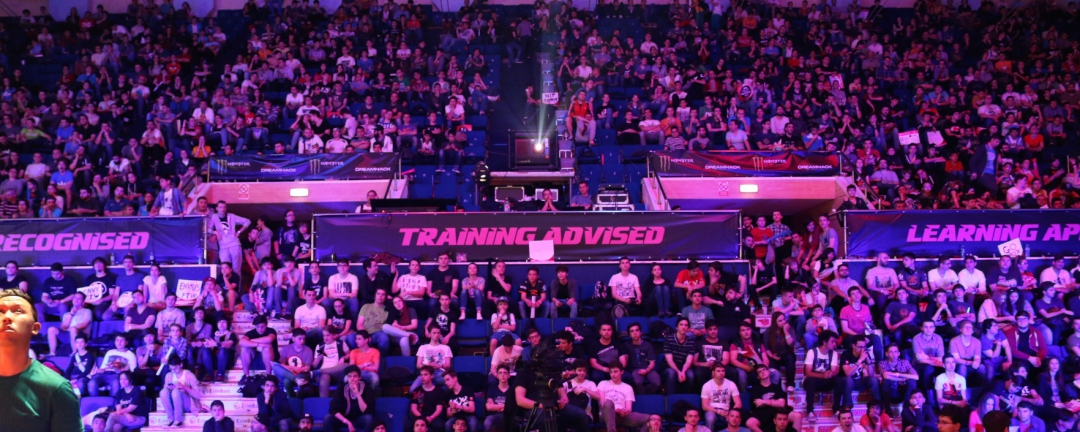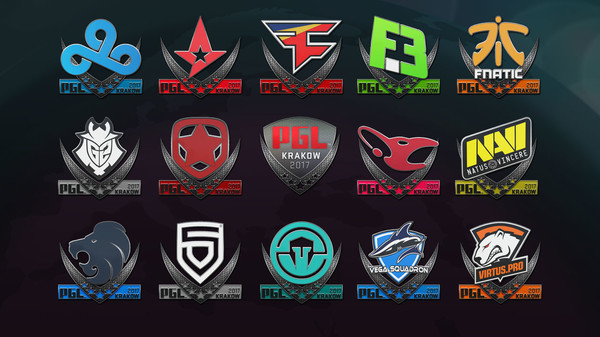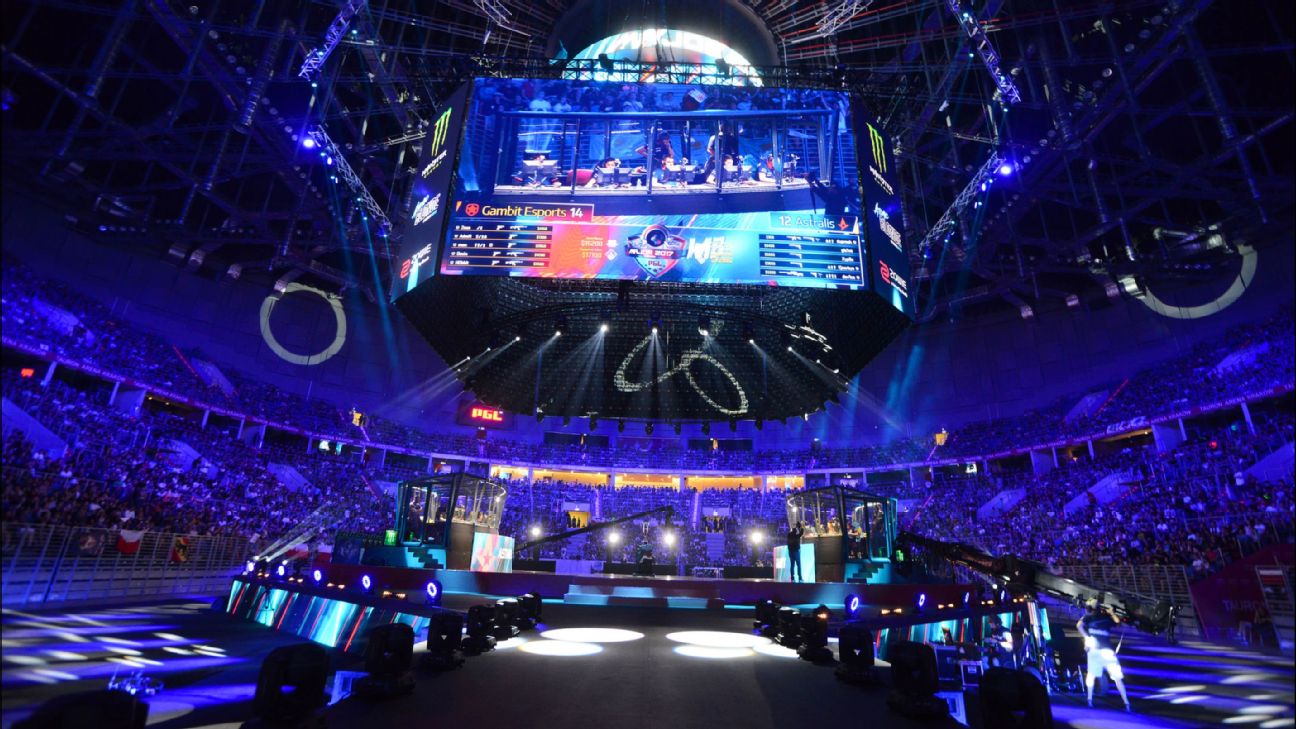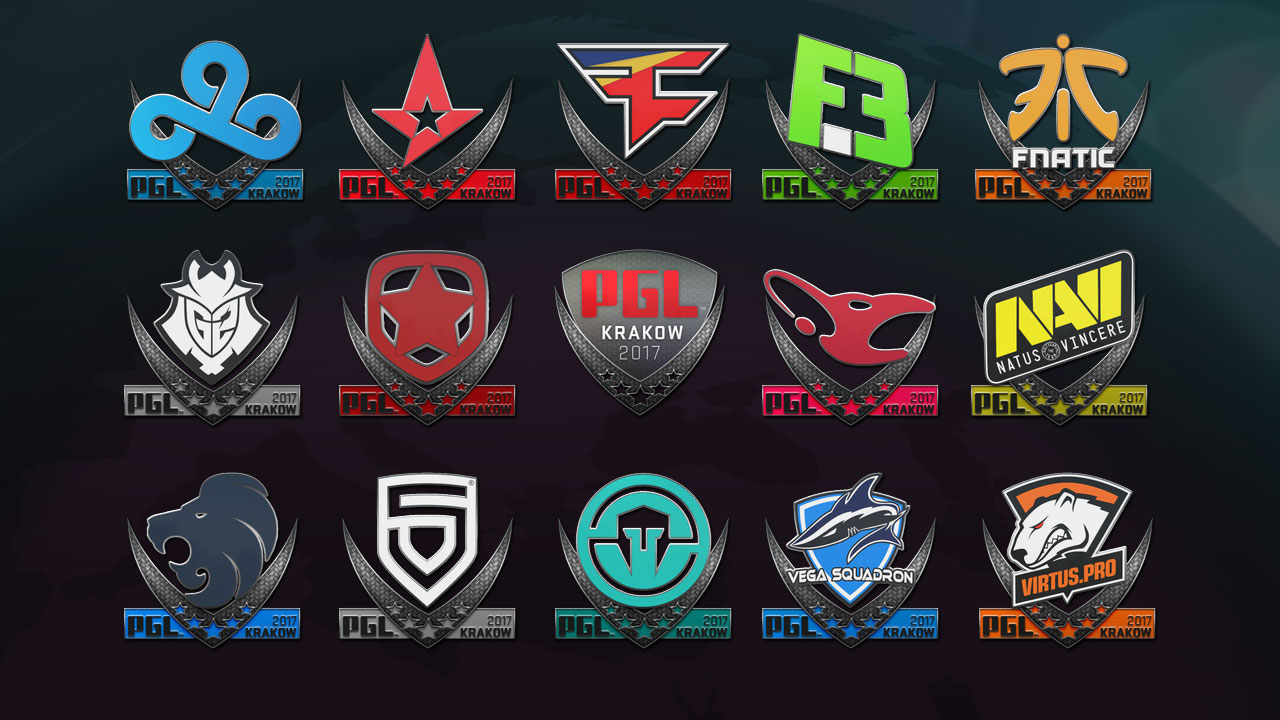Pgl Krakow Major Csgo
The PGL 2017 Krakow CS:GO Major
- The next CS:GO major will be held in Krakow, Poland by PGL, this will be the first PGL Major of CS:GO. The groups will be played backstage while the playoffs will be played in the Tauron Arena Krakow.
- This will be the third-ever major where PGL has been involved; they were a part of DreamHack Cluj-Napoca in 2015, and hosted PGL Krakow in 2017. 📢 PGL TO HOST THE FIRST CS:GO MAJOR AFTER A TWO-YEAR BREAK.
- 2017.03.15 - Today we’re excited to announce the 2017 Krakow CS:GO Major Championship Series, hosted by PGL. The eight week event will span June 1 to July 23, beginning with the Asia Regional Minor Championship and culminating in the Major Championship Grand Final Match in the Tauron Arena, Krakow, Poland.
2017.03.15 -
PGL hosted its latest and only CS:GO Major in Krakow in 2017 'First of all, my colleagues and I are passionate fans of CS. We grew up and watched this game getting bigger and bigger, just at the same pace as our development as a company,' PGL CEO Silviu Stroie said in a statement.
Today we’re excited to announce the 2017 Krakow CS:GO Major Championship Series, hosted by PGL.
The eight week event will span June 1 to July 23, beginning with the Asia Regional Minor Championship and culminating in the Major Championship Grand Final Match in the Tauron Arena, Krakow, Poland.
Representing Their Region
It all starts on June 1, with the Regional Minor Championship in Asia, with the Americas (June 8), CIS (June 8), and Europe (June 15) to follow. At each Minor, eight teams will compete for the chance to win their share of a $50,000 prize pool and advance on the road to the Major Championship.
Pgl Krakow Major Csgo Servers
Finding the Challengers
On June 29th, the top two teams from each Minor will head to the LAN Qualifier, where they’ll face off against the lower eight teams from the Atlanta Major. Over four days, these teams will battle it out to determine which half will become Major Challengers, and which half will go home.
The Final Showdown
This past January, in Atlanta, Astralis triumphed over 15 teams to become the reigning CS:GO Major Champions. They and the other 7 finalists became Legends and secured a direct invitation to the Major in Krakow.

The PGL 2017 Krakow Major Championship begins July 16th with Legends and Challengers fighting for their share of a $1,000,000 prize pool and a chance to become Major Champions in front of fans and viewers worldwide.
From July 16th to July 19th, all sixteen teams will compete in a group stage to advance to the playoffs. On July 21st, the new Legends will take to the main stage at the Tauron Arena for the playoffs, with the Grand Final taking place July 23rd.

The PGL 2017 Krakow CS:GO Major Championship Series:
June 1-4 – Asia Regional Minor Championship
June 8-11 – CIS Regional Minor Championship
June 8-11 – Americas Regional Minor Championship
June 15-18 – Europe Regional Minor Championship
June 29 – July 2 – Major Championship LAN Qualifier
July 16 – 19 – Major Championship Group Stage
July 21 – 23 – Major Championship Playoffs
For more details on the PGL 2017 Krakow CS:GO Major Championship Series, visit: major.pglesports.com
The PGL Krakow Major Championship, which began Sunday, is the 11th rendition of a Valve-backed Counter-Strike: Global Offensive tournament. Since it began sponsoring majors, Valve has brought prize pools over $1 million, given DreamHack, ESL and other companies rights to put on tournaments and, since 2016, greatly raised the stakes and rewards for top-tier CS:GO teams.
The level of play in CS:GO is reaching perhaps the highest point in the game's history, and there's a measure of parity in the game, too. At least three teams having a legitimate chance at winning it all in Krakow.
But how did the summer's premier event end up in Poland this year?
Valve asks the event organizers for their proposals for the major circuit, which includes online pre-qualifiers, regional minors, the main qualifier event and the major itself. The winning bidder doesn't have to worry about the $1 million-plus prize pool; Valve puts up the money for the major. And other CS:GO events don't come close to the majors in viewership, which means more cash for the company behind the event than for other tournaments -- and let's not forget about the prestige of hosting the major itself.


Since 2014, the summer major has been ESL One Cologne, a stadium event at LANXESS Arena. With PGL in place this summer, Cologne concluded on Sunday without the major tag and with a smaller $250,000 prize pool.
As a result, the schedule this year is more strenuous. The summer major takes place a week after another premium $250,000 stadium event, and it collides with two $100,000 events hosted by DreamHack: one in Valencia this coming weekend and another one in Atlanta during the weekend of the Krakow finals.
You could call it poor planning, but the reality is likely more interesting. And in a March interview with Slingshot Esports, Marc Winther, the director of DreamHack Masters, expressed some veiled frustration with the timing of the major and called it 'unfortunate.'
While DreamHack announced their 2017 circuit in 2016 and ESL One Cologne's announcement took place a year ago, PGL does not host stand-alone events, and Valve hadn't given a major to a one-off company until this tournament. In fact, the company is best known for the high-quality production -- most likely their key selling point in the bid -- with creative additions such as augmented reality add-ons, their customized in-game HUD and innovative at-all-times player cameras. Before, landing a major was seen as validation of past events, but no more.
In fact, had PGL not won the major bid, it is unlikely PGL Krakow would be happening at all. There had been no mentions of a potential event in advance of the major announcement.

With little financial risk for PGL and two competitors that had already sunk their costs to stadiums that need to be filled, the timing of the major could be considered a tactical decision, regardless of if it was intentional or if circumstances such as scheduling for the venue forced PGL's hand. A Valve-promoted event is all-but guaranteed to come out as No. 1 tourney in terms of viewership and quality. And it also happens to hurt PGL's direct competitors by pitting its major against their second-tier event, which then cannot attract the best teams, talent or the most fans.
Pgl Krakow Major Csgo Skin Changer
It might not have been PGL's intention, and it is, unfortunately, entirely possible that Valve did not realize the implications of giving PGL the event. Event organizers are competing for teams' attendance as it is, and the CS:GO scene is on thin ice in its current form. There are too many events, and poor scheduling leading to lower viewership will only make organizers demand that the open circuit gets converted into an American sports-style exclusive league even more.
Investors would absolutely love that, as it would then make owning a Counter-Strike team less of a gamble, but it might not be the way to go until the scene has developed further. Today's revenue-sharing leagues will slow down growth in prize pools, but not stop what appears to be the inevitable -- an exclusive league taking over.
If Valve does not plan to take a more hands-on approach to CS:GO, which seems a given by now, the way event organizers bid for these events should be re-thought. Majors should be announced far in advance, giving organizers for smaller events the ability to plan around them. That would also be in the best interest of all the other stakeholders: players planning their year, teams that would like to know how many majors will take place and sponsors who need to understand the next year will look like.
Pgl Krakow Major Csgo Crosshair
Before becoming the kind of exclusive league that will make its players millionaires, CS:GO needs to not just stay intact, but continue the growth that has gotten it to this point. All actions have consequences, some of them unwanted and surprising. Companies will game theory against each other if it helps, and it is up to Valve, as the closest to a governing body in Counter-Strike as exists, to enforce healthy competition.
No permanent damage has likely been done yet, but the publisher of a premier esports title cannot afford to overlook the potential for future scheduling conflicts like this one. From here on out, there has to be a plan in place.
Tomi 'lurppis' Kovanen is a retired Counter-Strike pro. Follow him on Twitter at @lurppis_.